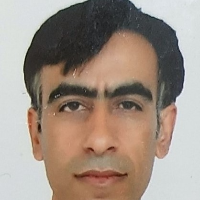An Inquiry Into The Iranian Origins Of Futuwwa
Author(s):
Article Type:
Research/Original Article (دارای رتبه معتبر)
Abstract:
Futuwwa ritual is considered as a powerful, original, ethical, long-lasting and epoch-making sub-culture in the history of Iran. Some believe that the origin of Futuwwa, based on Futuwwa epistles (futuwwat-nāma), historical documents and mystical texts, has its roots in the manifestations, religions and beliefs of ancient Iran, but another group believes in the Islamic origins of this ritual. Although various factors such as Islamic teachings, social developments and political powers have played a role in the formation, development, evolution and expansion of Futuwwa ritual; the existence of some similarities between this ritual and the beliefs, rites, ceremonies and religions of ancient Iran shows that Futuwwa was greatly influenced by ancient Iranian culture. This article is prepared in a descriptive-analytical method and tries to express the origins of Futuwwa in ancient Iran regarding two approaches, form and thought. The results of this research show that some Ayyaran words such as: Aiyar/Ayyar, Shkoh, Mireh, Asbaran, Azadan, indicating the Ayyaran-like life in the old Iranian tradition. Wearing pants and fastening special Ayyaran belt, drinking water and salt, carrying a dagger, lighting a light, ringing a bell and tattooing, which have been customary among Fetians and Ayyaran, have their roots in the ancient rituals of Iran. Referring to chivalry in Avestan sources and epic narratives, as well as the existence of similarities between the intellectual foundations and social thoughts of Mithraism, Zoroastrianism, Ahl-e-Haq, Mani, Mazdak and Futuwwa are other things that this research has achieved.
Keywords:
Language:
Persian
Published:
Journal of The Iranian Studies, Volume:23 Issue: 45, 2024
Pages:
45 to 69
https://www.magiran.com/p2742699
سامانه نویسندگان
مقالات دیگری از این نویسنده (گان)
-
Representation of the economic discourse of the chivalry and Ayyari utopia
*, Hossein Pouladian, Mahmood Arekhi
Journal of Kavoshnameh in Persian Language and Literature, -
Self-reliance of Love and war in the couplets of Fayez Dashti based on the theory of conceptual metaphor
Ehsan Ziarati, *, Javad Dehghanian, Mohammadamin Sorahi
Boostan Adab, -
Analyzing the Utopian Components of Chivalry (Futuwwat) Discourses
Hossein Pouladian *
Mystical Literature,




